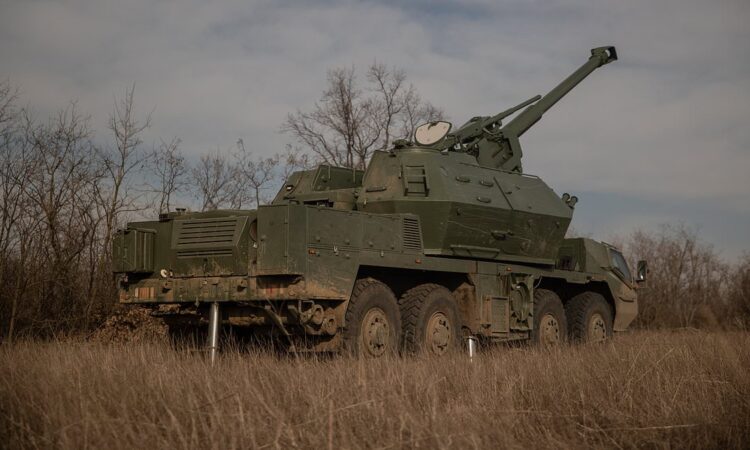Biden administration backs a $50 billion bond using frozen assets to give to Ukraine with Congress not expected to vote on additional funds until April

By Rob Crilly, Senior U.S. Political Reporter For Dailymail.Com In Washington, D.C.
17:04 21 Mar 2024, updated 17:43 21 Mar 2024
- Ukrainian forces are facing shortages of artillery and weapons in their fight
- Congress has failed to pass legislation authorizing fresh support for Kyiv
- Now the Biden administration is weighing a new strategy to find $50 billion
With Congress still deadlocked over providing more aid to desperate Ukrainian forces, the Biden administration is weighing ever more complicated and imaginative ways to funnel money and arms to the effort to repel the Russian invasion.
The latest idea is to sell bonds to raise money for Ukraine, all backed with hundreds of millions of dollars in frozen Russian assets.
The ‘freedom bonds’ could raise as much as $50 billion—almost as much as the stalled international security bill—to help Ukraine keep up its fight, while avoiding the thorny question of whether the $280 billion of frozen assets can be seized legally.
The proposal emerged on Thursday, as Russia fired more than two dozen missiles at the Ukrainian capital Kyiv and European leaders met to decide how best to use the Russian assets.
The European commission this week proposed taking profits from the frozen assets for a fund to arm Kyiv.
At the same time, Bloomberg reported that American officials are floating an alternative plan.
Their proposal would pool the $280 billion of Russian central bank assets frozen by by G-7 nations and the European Union in a ‘special purpose vehicle’. Profits from the assets, which amount to more than $3 billion a year, would then back the bonds.
Investors would be promised a specified rate of interest during the life of the bond.
However, sources cautioned that the proposal was at an early stage, although it had been raised with other members of the G-7 most developed nations.
Governments have long used similar bonds to fund wars.
The idea comes at a time when Ukraine is facing an artillery shortfall and Russia has gained ground in the east. Meanwhile, U.S. aid is hamstrung by Republican opposition in the House of Representatives for a new bill to finance support.
E.U. leaders gathered in Brussels Thursday for a two-day summit to try to bolster Ukrainian forces.
German Chancellor Olaf Scholz said he backed the European Commission’s plan for using profits from the frozen assets.
‘I am quite sure that we are sending a very clear signal to Putin here …And the use of windfall profits is a small but important component,’ he said, according to Reuters.
However, neutral or non-aligned nations have expressed reservations about using the money for weapons.
‘For us neutrals it must be ensured that money, for which we give our approval, is not spent on weapons and ammunition,’ Austrian Chancellor Karl Nehammer said.
And European leaders are also worried about doing anything that could be interpreted as seizing the assets. That could trigger legal challenges and attract retaliation from Moscow.
Ukrainian President Volodymyr Zelensky is expected to join the summit by videolink.






